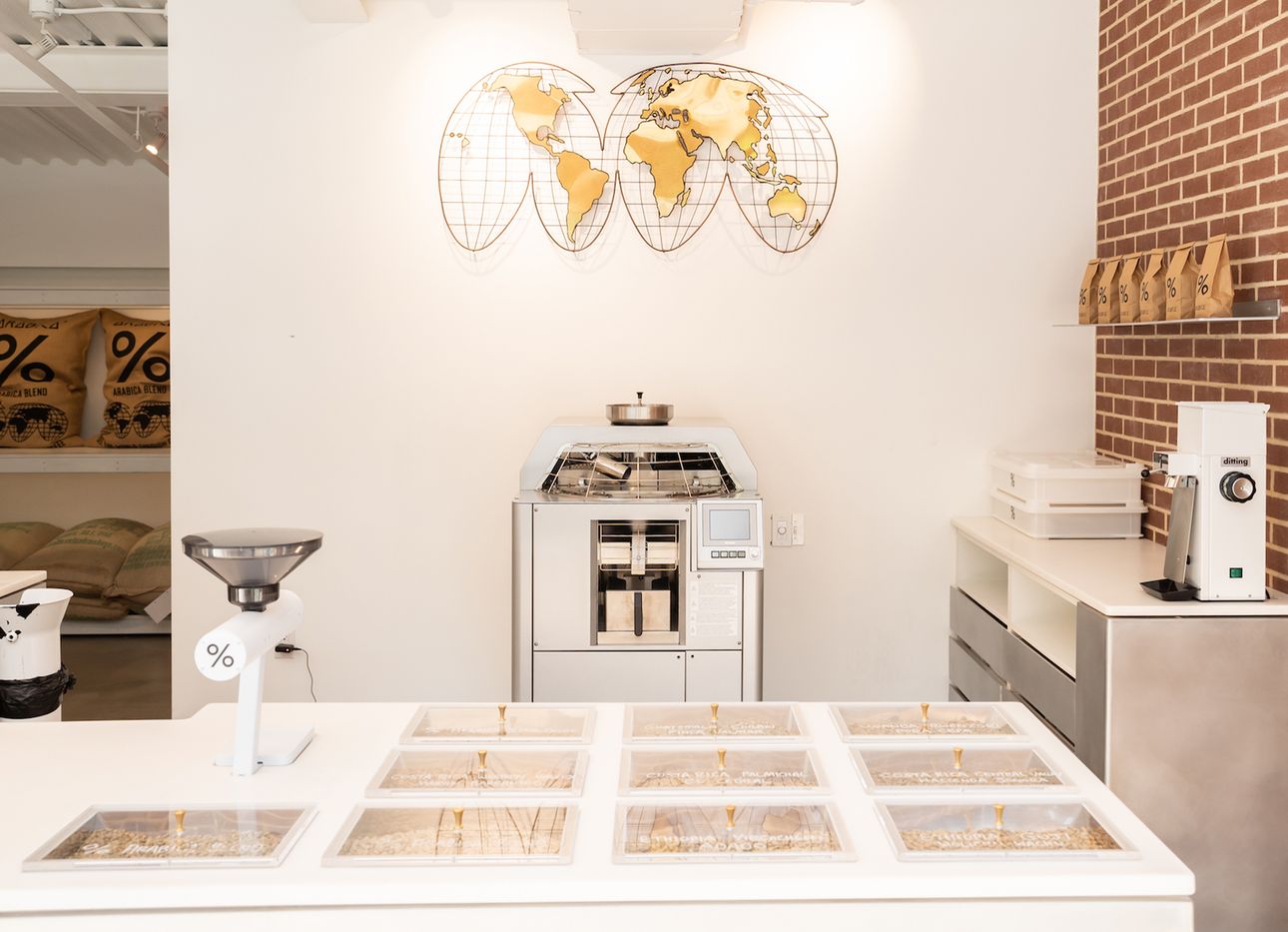
Fresh Coffee Beans, Custom-Roasted On the Spot
Kenneth Shoji attended university in Southern California, far away from his native Tokyo, hanging out and studying at a Starbucks in Venice Beach. After graduating, he took a job at a trading company that took him traveling around the world, and into the lives of business owners, some of whom he found were happy, while others were unfulfilled. The experience prompted Shoji to contemplate how he might build his version of a satisfying life—one defined by a simple, down-to-earth ethos—and led him back to those gratifying cups of coffee he’d consumed during his college years.
His quest to create the perfect version of the beverage soon began: He borrowed money, bought a coffee farm in Hawaii, and started buying and selling beans and exporting espresso and roasting machines. In 2014, he opened % Arabica in Kyoto, Japan, a flagship location for his coffee company that has since expanded to more than 80 locations around the globe.
The company’s signature focus on freshness is on full display at one of its newest cafés—and its first in the United States—set in the Dumbo neighborhood of Brooklyn and designed by the French studio Ciguë, a firm whose highly detailed, material-focused retail work also includes projects for the likes of the skincare company Aesop, fashion label Isabel Marant, and shoe brand John Lobb). It’s one of around half of % Arabica’s shops that feature a “green bean corner,” where visitors can choose unroasted beans from a handful of countries, such as Uganda and Ethiopia, that change based on the time of year. Once selected, a staffer roasts the variety to the customer’s desired flavor profile, and a few minutes later, it’s ready to be brewed.
The procedure lends itself to the perishable nature of roasted coffee kernels, which begin oxidizing immediately after they’re cooked and have a shelf life of about one week. Not sure which beans to choose? Try the house roast, which is always on offer and has an approachable, deliciously balanced medium-dark savor.